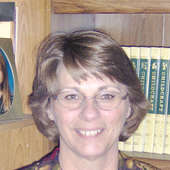Our penchant for evil
Witnessing or reading about some despicable act -- a horror committed against an innocent child or a cruelty against a dumb animal -- the cry inevitably goes out, "I could never do something like that!"
This is perhaps our culture's most dangerous deception. Because, given the right set of circumstances, yes, you could. Any of us could.
History proves it. Personal experience proves it as well.
A man, or a woman, caught in adultery, if asked on their wedding day if there was any way that they could ever stray, would reply, "I could never do that!"
But, the unthinkable happened and here they are. Trust demolished, their lives in ruin, they stand, completely bewildered, wondering, "How did this happen to me?"
The truth of the matter is simple. The potential for evil lives in each one of us. To deny that truth is to set ourselves up for a serious fall.
To deny it in others is equally perilous. To believe that all men, given the right set of circumstance -- enough money, enough education, enough self-esteem, etc., -- are good at heart, is a dangerous thing.
Years ago, I watched the epic movie "Schindler's List." Not too long ago, I had the opportunity to read the book and even though I thought I knew the story and certainly knew how it ended, I read it, page by page.
I had forgotten more than I remembered, or once again, celluloid failed to capture the entire story. Because what I gleaned from the book, what I had failed to see in the movie, sat me up with astonishment.
You see, through the years, watching various films, documentaries and old newsreels detailing the Holocaust, I always wondered, how could they just stand there, so placid, so calm, when their fate was so very, very horrible and so very, very sure?
It came clear in the telling of Oskar Schindler's tale by author, Thomas Keneally.
You see, they didn't believe in evil. They had been conditioned for centuries to expect a certain level of injustice, just because of who they were. Their collective history had, in fact, prepared them for the unprecedented slaughter that was to come. Because of that history, as each new indignity was introduced, they would reassure one another with the words, "This is as far as they'll go. This we can endure. This we must endure."
Oh, I admit it. Life is a lot easier to bear when we can sustain the illusion that evil is just a word. A powerless word. A simple fantasy created by Hollywood to evoke fear and trembling -- fear and trembling that dissipates as the final credits roll and we remind ourselves, as Winnie used to tell Danny, "Don't worry, the cameraman is always there."
The problem with that mindset is that evil denied is evil unleashed.
If we deny our own propensity for evil we become fair game for every temptation known to man, weakened by our own sense of invincibility. If we deny every man's propensity for evil, we make ourselves victims of it, individually and as a community of people, and evil triumphs.
But if we acknowledge evil, in ourselves and in others, we arm ourselves and we learn to take a stand against it, in ourselves and in others. And we begin to understand the nature of the battle waged moment by moment, not only in spiritual realms, but also in the hearts and minds of men.
If we can begin to understand that, we can then begin to understand the righteous judgement of God and our true standing before him. And that understanding drives us to our knees at the feet of Jesus, our only hope, our only help.
"Why do you call me good?" Jesus answered. "No one is good -- except God alone." Mark 10:18 (NIV)
Things you won't see in heaven:
Evil deeds
-- You can now hear Dawn Cribbs' column on the radio at 1:01 p.m. Wednesdays on KNGN, 1360 AM.
Audio from KNGN 1360 AM:

